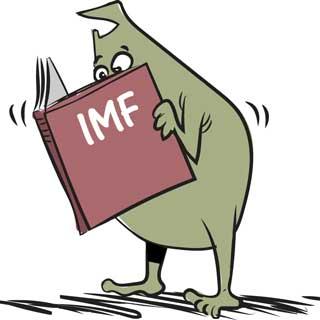18 Aug 2022 - {{hitsCtrl.values.hits}}
Speaking at the ‘Reform Now’ conference organized by the Advocata Institute, President Ranil Wickremesinghe revealed that the agreement with the International Monetary Fund (IMF) regarding the grant for a restructuring facility which could enable the country to come out of its near bankrupt situation had been postponed to September. He added the political instability of the past few months had caused the delay.
 But IMF/World Bank bailouts come with strict conditions on curtailment of expenditure and cutting down on subsidies - in other words structural change - which includes the pruning of staff.
But IMF/World Bank bailouts come with strict conditions on curtailment of expenditure and cutting down on subsidies - in other words structural change - which includes the pruning of staff.
At different times, a number of Asian countries have been forced to appeal to the IMF for restructuring facilities. During the Asian Financial Crisis of 1997 - 1998 five Asian countries -Thailand, South Korea, Indonesia, Malaysia and the Philippines - were forced to seek IMF assistance. The four countries were able to recover from their debt crisis through undertaking the IMF recommended changes which included domestic reform processes such as giving independence to their respective Central Banks, ensuring knowledgeable persons head strategic areas of the economy, streamlining government departments and curtailing
excessive spending.
Speaking at the same conference, Professor Athukorale lauded the success of the four countries, which have since then, never have had the need to seek IMF assistance.
This is not the first time Sri Lanka has approached the IMF for such facility. We have gone to the IMF on sixteen previous occasions and are now approaching that institution from a position of bankruptcy. It means we will be forced to accept the terms and conditions imposed by that institution.
Curtailment of expenditure will entail government departments having to down-size departmental staff, which have been unnecessarily enlarged with every change of government to accommodate
political supporters.
Public sector employees constitute about 19.10% of the total employment in the country. The growth of the public sector employees in recent times has increased via recruitment of graduates to various positions in the service. However the question that arises is, despite the numerical growth of the public service, whether the quality of service has improved.
For example, media reported Ministry of Health recruited 3,700 individuals, though the casual staff that should be employed under the Ministry of Health and its hospitals stood at 73, with the recent recruitments, there is an excess of 3,627 individuals recruited on casual, temporary, or contract basis. Meanwhile, an excess of 2,661 people were recruited to fill 25 posts in hospitals and affiliated medical institutes.
The reports added, that many of the recruits were of unqualified persons to satisfy particular political parties.
In June this year, the Minister of Power and Energy tweeted, saying “...the number of staff at the Ceylon Petroleum Corporation (CPC) was “staggering”, which was one reason the CPC makes heavy losses and the Lanka IOC
does not...”
The aforementioned examples show there is a need to prune the public service in keeping with IMF demands to reduce government expenditure. However, while agreeing, these measures are necessary to bring down unnecessary expenditure; it will hit the workers at a time when growing shortages of all basics from fuel to gas to food to medicines, travel and children’s education, are skyrocketing.
Government and World Bank statistics show that over 500,000 persons have been drawn into the ranks of what can be termed the ‘new poor’. Additionally, the Covid-19 pandemic and today’s economic crunch also led to the closure of many small and medium enterprises leading to thousands of job losses.
The ‘Samurdhi’ programme benefitting the poorest sections of society will too be severely affected. These sections of the population will need to be cushioned from expected future price rises which will become necessary to meet the requirements to receive an IMF
restructuring facility.
If the government does not make necessary arrangements to tackle such a situation, it could lead to an uprising much worse than what we saw earlier this year.
27 Nov 2024 9 minute ago
27 Nov 2024 12 minute ago
27 Nov 2024 32 minute ago
27 Nov 2024 1 hours ago
27 Nov 2024 1 hours ago